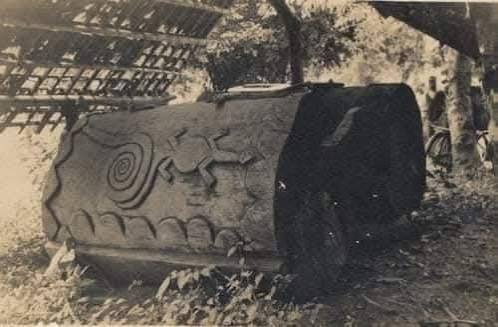In the 19th century, long before independence movements swept across Africa, a quiet revolution began in the port city of Freetown, Sierra Leone. The revolution wasn’t of guns and battles, but of minds, minds determined to prove that Africans were capable of governing, reasoning, and leading their own destiny.
Among those minds was Africanus Beale Horton, a man born of Igbo descent who would go on to challenge the very foundations of European prejudice and colonial superiority. “Onye kwe, chi ya ekwe.” (When a person believes, their destiny agrees.)

The Igbo in Sierra Leone: Exiles Who Became Elites
To understand Horton’s story, one must first trace the footsteps of the Igbo people who found themselves in Sierra Leone. Many were recaptives, freed slaves rescued by British anti-slavery patrols in the early 1800s and resettled in Freetown. Among them were Igbo, Yoruba, and other West Africans who would form the Creole (Krio) community. These resettled Africans carried with them fragments of their culture: language, proverbs, songs, and kinship systems, and merged them with new influences of Christianity and British education.
The Igbo among them were often known for their discipline, entrepreneurship, and learning spirit. Some, like Horton’s ancestors, rose to prominence in medicine, law, and governance. The fusion of Igbo resilience and British education created a generation of thinkers who were both African in soul and Western in scholarship, and none embodied this more than Africanus Horton.
The Making of a Revolutionary Mind
Born in 1835 in Gloucester Village near Freetown, James Beale Africanus Horton was raised in a Christian family of Igbo recaptive descent. His intelligence earned him a place at the Fourah Bay Institution, the first Western-style university in Africa, where he studied alongside other brilliant Africans like Samuel Ajayi Crowther.
He later attended King’s College, London, and the University of Edinburgh, where he trained as a physician under the British Army. But it was not enough for Horton to heal the body; he wanted to heal a wounded continent.
In 1868, he published West African Countries and Peoples: A Vindication of the African Race, a groundbreaking book that dismantled racist European theories claiming Africans were inferior. He argued that Africa’s backwardness was not inherent, but the result of oppression and lack of opportunity, ideas that would later inspire generations of Pan-Africanists.
“Ọnụ kwuru okwu, e si na ya mara ihe di n’obi.” (From what a person says, you know what’s in their heart.) Horton’s heart spoke of liberation, not resentment; of dignity, not despair.
Horton’s Vision for Africa
Unlike many of his European contemporaries, Horton believed Africa could and should govern itself. He proposed the creation of independent African states led by Africans, built on science, education, and meritocracy. He even envisioned a university for West Africans, decades before independence, to nurture African leaders grounded in their heritage and trained in modern knowledge.
His writings called for constitutional reforms, African-led administration, and racial equality within the colonial framework. These were revolutionary ideas in an age when Africans were deemed “subjects” rather than citizens. Though his calls went largely unheeded during his lifetime, they sowed the intellectual seeds for the rise of African nationalism. “A na-ekwu na ihe chi nyere mmadụ, ọ gaghị efu ya.” (It is said that what destiny gives a person can never be lost). Horton’s destiny was to plant the idea of African freedom long before its harvest.
Other Sierra Leonean Igbo People: Forgotten Names of Greatness
Africanus Horton was not alone in this legacy. Sierra Leone became home to several notable Igbo descendants who rose to prominence:
- Christopher Okoro Cole (1909–1999): A distinguished jurist and former Chief Justice of Sierra Leone, also of Igbo ancestry.
- Robert Benjamin Ageh Wellesley Cole (1907-1995): A Sierra Leonean surgeon and writer who was the first West African to become a Fellow of the Royal College of Surgeons of England. His mother is from the Okrafo-Smart family, a prominent Igbo family of Sierra Leone.
Their stories, though scattered, weave into a shared narrative of migration, resilience, and reinvention, the story of ndi Igbo n’ụzọ ọzọ (Igbos in distant lands).
Legacy: A Bridge Between Worlds
Horton’s work inspired future African reformers like Edward Blyden, Herbert Macaulay, and later Nnamdi Azikiwe, who would continue the mission of proving African capacity to self-rule. In his writings and service, Horton embodied the dual identity of being Igbo and Sierra Leonean, African and cosmopolitan. He bridged Africa’s past and future, faith and reason, local identity and global relevance.
When he died in 1883, his vision for African self-determination was still a dream. But today, his legacy shines brighter than ever, in universities, national movements, and the reawakening of diasporic pride. “Ihe onye dere na akwụkwọ anaghị akwụsị ndụ.” (What one writes in books never dies). Africanus Horton wrote with truth, and so, he lives still.
References:
- George Nnad. (2022, August 19). The Igbos & Yorubas of Sierra Leone.
- Wikipedia. (n.d.). Africanus Horton. Wikipedia. (n.d.). Category: Sierra Leonean people of Igbo descent.
- Wikipedia. (n.d.). Christopher Okoro Cole.




